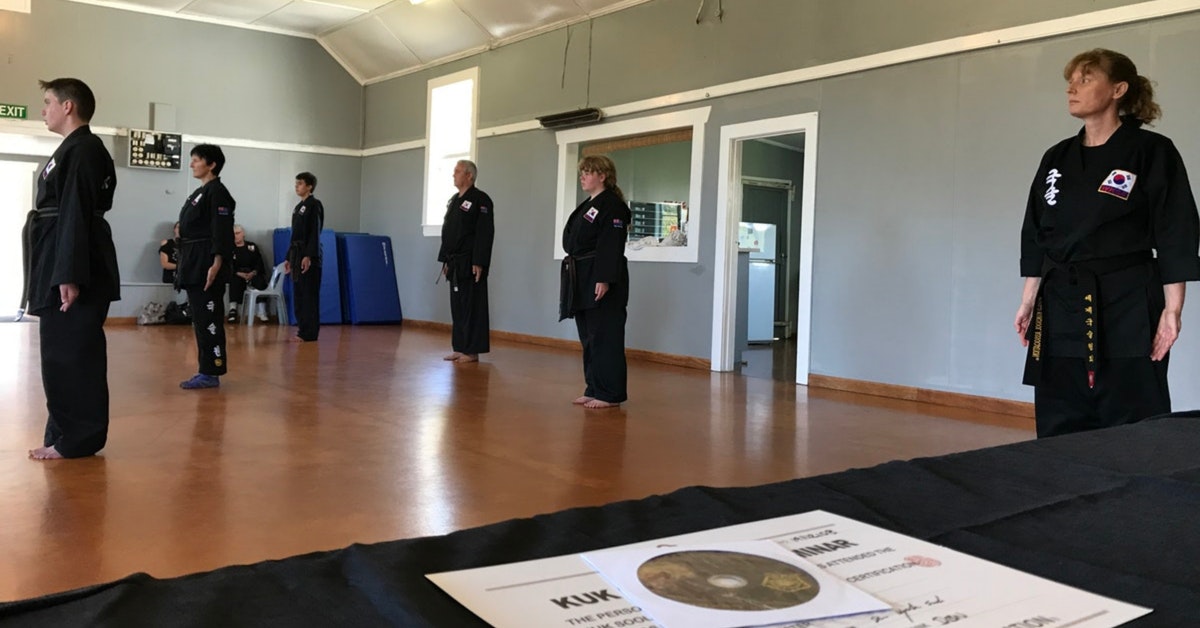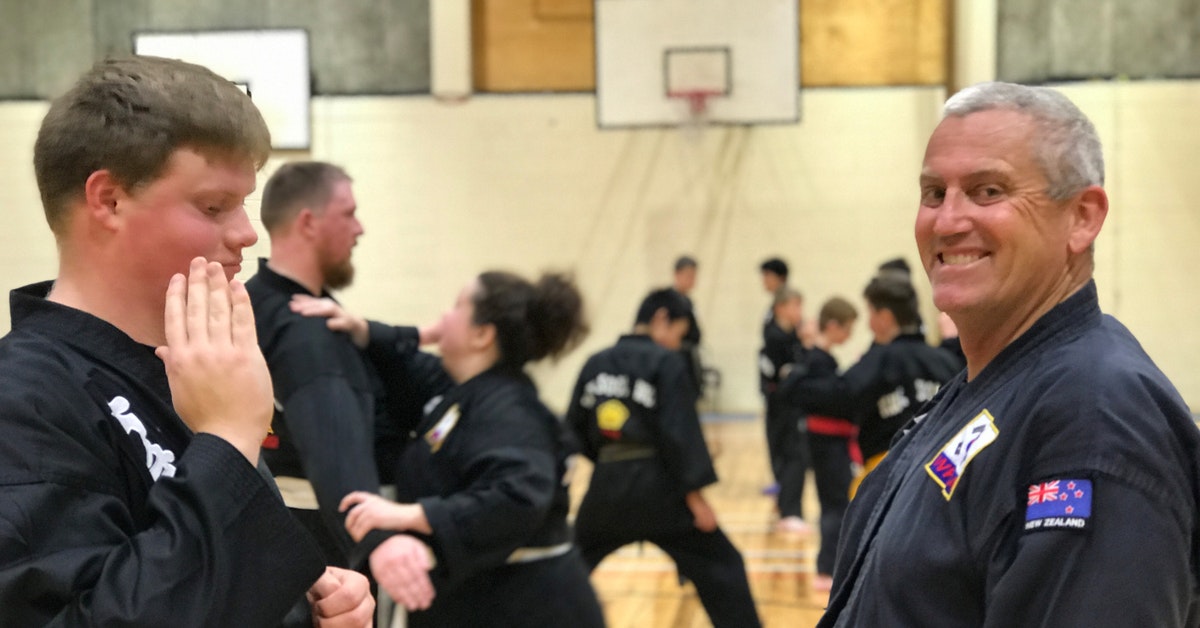|
In a traditional martial art we are taught to follow the teachings of our instructor without question. This can be a particularly difficult concept to grasp. We live in a world where we are taught from a young age to question and to challenge as a fundamental way of learning.
As a highly educated person, I have built my professional and academic life around questioning. I am a lawyer and have a doctorate. I am inquisitive by nature and have a thirst for knowledge. I love a good debate as a way of deepening my understanding. Adopting a challenging mindset and approach is ingrained in the way I live my life. My early martial arts journey in the Korean martial art of Kuk Sool Won™ was difficult for me. I approached it with the usual “why”, “what” and “how” questions that have served me so well in other aspects of my life. “Why am I learning this”, “what is its purpose”, and “how does it apply to a real-life situation” were frequent questions. It was not that I didn’t trust my instructor. Rather, my mind was conditioned to challenge and question as a way of developing my understanding. I was met with a response that I was not expecting. I was told that I didn’t need to understand why, I just needed to do it. This was counter-intuitive to me. Over time I have come to realise that there can be value in following instructions and simply doing, rather than always questioning and striving to know why. As I progressed through the coloured belt ranks I started to understand how the material I was learning at each belt level not only added a new physical skill. I found myself having “aha” moments where a concept suddenly became clear. For example, instead of just going through the physical movement of a technique such as a wrist lock, I began to understand the concept in a way that I could then apply to other techniques. This embedded my knowledge and understanding in a more lasting and powerful way than any explanation by my instructor could have achieved. I needed to learn by doing rather than by questioning and being told. As I approach second degree blackbelt, I realise how much I have learned about my martial art simply by participation and being a diligent student. I am not an expert by any means, and I know that I have only scratched the surface in my martial art of Kuk Sool Won™. However, by walking the martial arts path with a different mindset, I have gained a depth of knowledge that transcends anything I have specifically been told or taught. The importance of this approach was reiterated in the annual visit to New Zealand by Executive Master and eighth degree blackbelt, SIKJN Suh. He spoke to us and our students of the importance of trusting our teachers. All Kuk Sool instructors are well trained, and quality is controlled through a comprehensive syllabus, regular testing and audits, and a school licencing system. We all teach the syllabus developed by our Grandmaster in the same way. It is designed to progressively develop and build on our skills and knowledge through experiential learning (learning by doing). In Kuk Sool, faithfully following our martial arts system of learning, as developed by our Grandmaster and taught by our instructors over years, will develop deep understanding and expertise. I believe it is not necessary to be “told why” to become a good martial artist. We do need to trust our instructors and the syllabus we are being taught and have the discipline to practice consistently. This approach frees us up to enjoy the process of learning with our bodies, as much as with our minds. Knowledge and understanding will come as part of this process of learning by doing and it will be long lasting and rewarding. JKN Jane Hurst First degree black belt and school owner Kuk Sool Won™ of Onewhero Copyright © 2019. Kuk Sool Won™ of Pukekohe and Onewhero. All Rights Reserved.
0 Comments
For SBN Caroline and I, our martial art of Kuk Sool Won™ is more than a hobby. It is our job, our passion and central to the way we live our lives. However, for most people, martial arts are a recreational activity. In our experience, students participate to get fit, learn some self-defense skills, build their confidence, and to enjoy the companionship of their fellow students. They set goals around achieving a certain rank and are motivated by the new material they learn at each new belt level. While the practice of martial arts is important, as with any recreational activity, it must fit in around many other life commitments.
A recreational martial art usually involves around 2 to 4 hours of structured training a week in a class environment. While this is enough time to learn the basic skills, in our martial art of Kuk Sool Won™ there is a lot of material to learn and perfect, especially as a student progresses towards black belt (and beyond). This invariably means our students need to practice their material outside of class time. This can be challenging, particularly for those students who are time poor or do not have someone they can practice with outside of classes. As well, students may not always have a training partner at the same belt level in their school. For example, my training partner left when I was a yellow belt (after six months of training). As ours was a small school, I never had another regular training partner at my belt level. Having a fellow student of the same rank as a training partner makes training much more enjoyable, helps with motivation, and aids the learning process, as you help each other to practice and remember your material. I know from experience that it definitely makes training more difficult when you no longer have another student at your level to train with. While participating in martial arts as a recreational activity is enjoyable and rewarding, there are definitely some training challenges to be overcome. We have come up with some tips to make your training and practice more enjoyable and effective.
Martial arts training is a fantastic recreational activity. To get the most out of it, you need to be smart about how you train. The tips I have outlined above are ways to maximise the time you have available. Your instructor and other more senior students will also be a great source of knowledge. Ask for advice and be creative in the ways you train so that you can find works for you. JKN Jane Hurst First degree black belt and school owner Kuk Sool Won™ of Onewhero Copyright © 2018. Kuk Sool Won™ of Onewhero. All Rights Reserved. |
Caroline and Jane Hurst
Caroline is a 5th degree black belt and Jane is a 2nd degree black belt in the traditional Korean martial art of Kuk Sool Won™ . They run 2 Kuk Sool Won™ martial arts schools in New Zealand. Archives
March 2019
Categories
All
|



